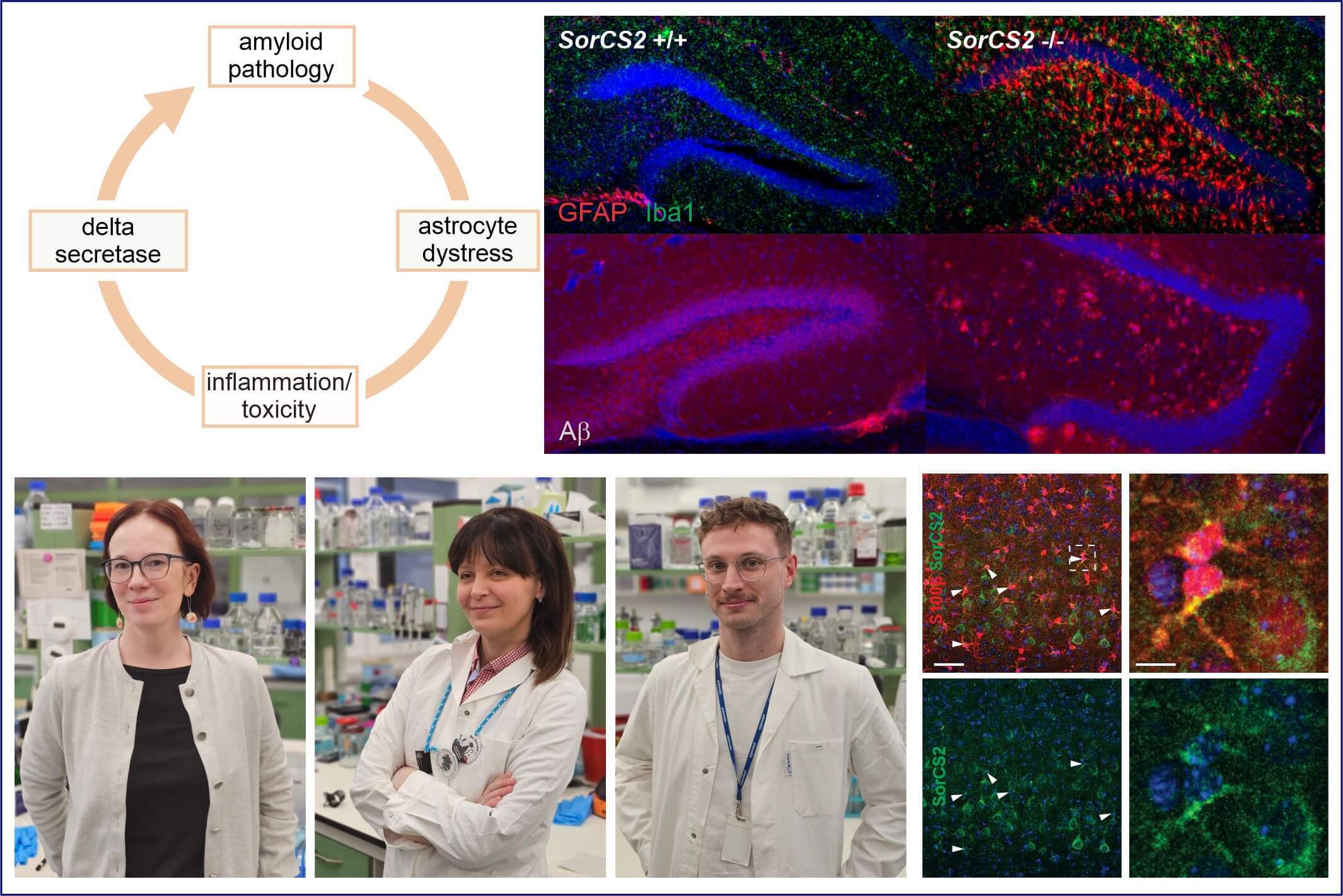Publication by Prof. Anna Malik’s group in Nature Communications

03 11 2025
A paper presenting research on the pathogenesis of Alzheimer’s disease, conducted by Dr. Ewelina Ziemlińska, Tomasz Obrębski, MSc, and Prof. Anna Malik from the Cellular Neurobiology Research Group (Faculty of Biology UW), together with their collaborators from Germany, Poland, and Denmark, has been published in Nature Communications. The researchers demonstrated that an abnormal response of a specific type of glial cells – astrocytes – to amyloid-β contributes to the accumulation of pathogenic protein deposits in the brain, a process that plays a key role in the development of Alzheimer’s disease.
Alzheimer’s disease is a progressive neurodegenerative disorder leading to memory loss, cognitive impairment, and structural changes in the brain. One of the factors causing neuronal dysfunction and death in this disease is the accumulation of toxic amyloid-β deposits in the brain. Using a mouse model of Alzheimer’s disease, Prof. Malik’s group and their collaborators showed that the development of pathological changes in the brain is promoted by a disrupted astrocytic response to stress induced by amyloid-β accumulation. A crucial factor for proper astrocyte function is the protein SorCS2, produced by these cells. In mice lacking SorCS2, even low levels of amyloid-β triggered astrocyte reactivity, leading to neuroinflammation and enhanced accumulation of amyloid-β and tau deposits, both hallmarks of Alzheimer’s pathology. The researchers further demonstrated that this aberrant astrocytic response to amyloid-β activates δ secretase, a protease involved in generating pathogenic forms of both amyloid-β and tau proteins.
We encourage you to read the original paper: “Astrocytes distress triggers brain pathology through induction of δ secretase in a murine model of Alzheimer’s disease”.